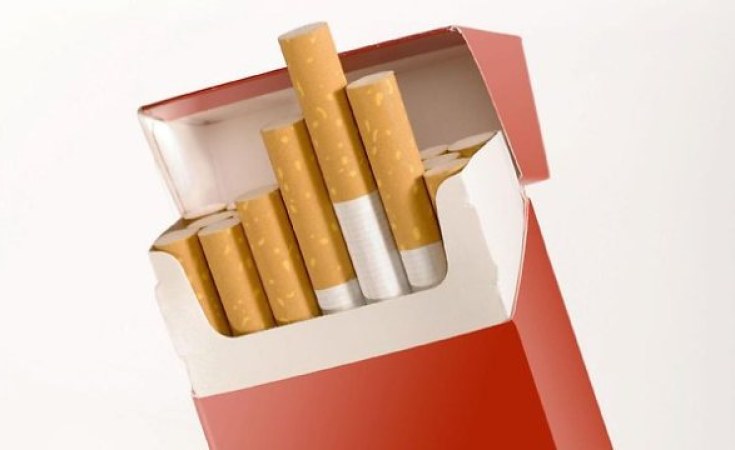The 10th Conference of the Parties (COP10) to the World Health Organization's (WHO) Framework Convention on Tobacco Control (FCTC) is currently held in Panama until February 10th, 2024, and amidst the discussions on tobacco control, a complex debate unfolds regarding the influence of Bloomberg Philanthropies in the policymaking.
Founded by Michael Bloomberg, Bloomberg Philanthropies has since 2005, "invested $1.58 billion to fight tobacco use, working with a global network of partners to prevent tobacco-related illnesses and save lives ", states the organization.
Here goes the Foundation in its manifesto: "Most tobacco-related deaths occur in low- and middle-income countries, areas that are targets of intensive tobacco industry marketing. Tobacco can also be deadly for non-smokers. Secondhand tobacco smoke contributes to heart disease, cancer, and other diseases. Unless urgent action is taken, tobacco will continue to kill more people every year. The scale of this human tragedy is preventable. The tobacco industry is fighting to ensure the dangers of their product are concealed, but we are fighting back".
Undoubtedly a noble aspiration and a worthy cause.
While the goal of reducing tobacco-related harm is praiseworthy, concerns have arisen about the extent of influence of Bloomberg Philanthropies, especially within the WHO. The organization's fundings and its association with the WHO have sparked debates.
Why is Bloomberg Philanthropies accused of Philanthro-Colonialism in LMICs?
Critics argue that it extends beyond just philanthropy to a level of influence that dictates policies, particularly in Africa and other Low-and Middle-Income Countries (LMICs), where smoking rates are the highest.
Despite the evidence that noncombustible sources of nicotine (e.g. snus, heated tobacco, e-cigarettes) are less harmful, Bloomberg Philanthropies-funded groups reject the tobacco harm reduction approach and push to treat all tobacco and nicotine products equally and apply the same taxes, restrictions, and prohibitions to these potentially life-saving alternatives in the LMICs where 80 percent of the world's smokers live.
During a Taxpayers Protection Alliance's (TPA), -Good COP/ Bad COP- livestreamed panel titled "Anti-harm reduction group's influence on global public health policies: How has billionaire Michael Bloomberg shaped debates surrounding tobacco harm reduction", Will Godfrey, executive director of FILTER, a drug policy and human rights advocacy group, said that the worst impact of Bloomberg funding is "the interruption of smoking cessation efforts in countries in the global South with high smoking rates and where relatively lower amounts of money will buy relatively more influence". He added to that: "I think it's sickening that so many people in these countries are being deprived of their best chance to quit cigarettes and to see Bloomberg-affiliated groups actually celebrating the bans that accomplish it."
Martin Cullip, International Fellow at TPA Consumer Center believes that Bloomberg-funded groups have put pressure on the regulators to restrict nicotine pouches in Kenya and Pakistan based on ideology. "These seem to me very good markets for nicotine pouches because they're low cost and they can get in places where there's heavy smoking rates, and yet they seem to be trying to damage the potential market in Pakistan and Kenya and trying to get the government to kick those products out and prohibit them, which is so anti-public health. This is ideological and it is damaging, " he said.
Could it be that the LMICs which are the most dependent on funding granted by international organizations find themselves with little if any autonomy in deciding their own future?
This question points to the complex dynamics between donors and policy-making bodies, hinting at a potential influence that goes beyond the curtains of the tobacco control scene and may prove right the well-known saying "He who pays the piper calls the tune".
Speaking at the event, South African Kurt Yeo, co-founder of "Vaping Saved My Life" echoes these blames, describing the legislative landscape as "lazy" and highlighting a blind adherence to WHO guidelines. He questions why South Africa, and by extension, other African and LMICs countries, are merely following the recommendations of influential entities without independently testing these guidelines in their environments: "I personally see it as lazy legislation in South Africa. They follow the WHO much like a church and are not in the position or don't have the ability to test those guidelines in their own environment."
All in all, everyone is in their role, engaging in favor of their deepest beliefs and interests. As COP10 progresses, the delicate balance between public health, philanthropy and external influence continues to be a point of contention.
The challenge lies in finding a middle ground that ensures effective tobacco control without compromising the autonomy of nations, especially in Low and Middle-Income Countries where the approach to tobacco regulation should only take into consideration the unique needs of the people.


